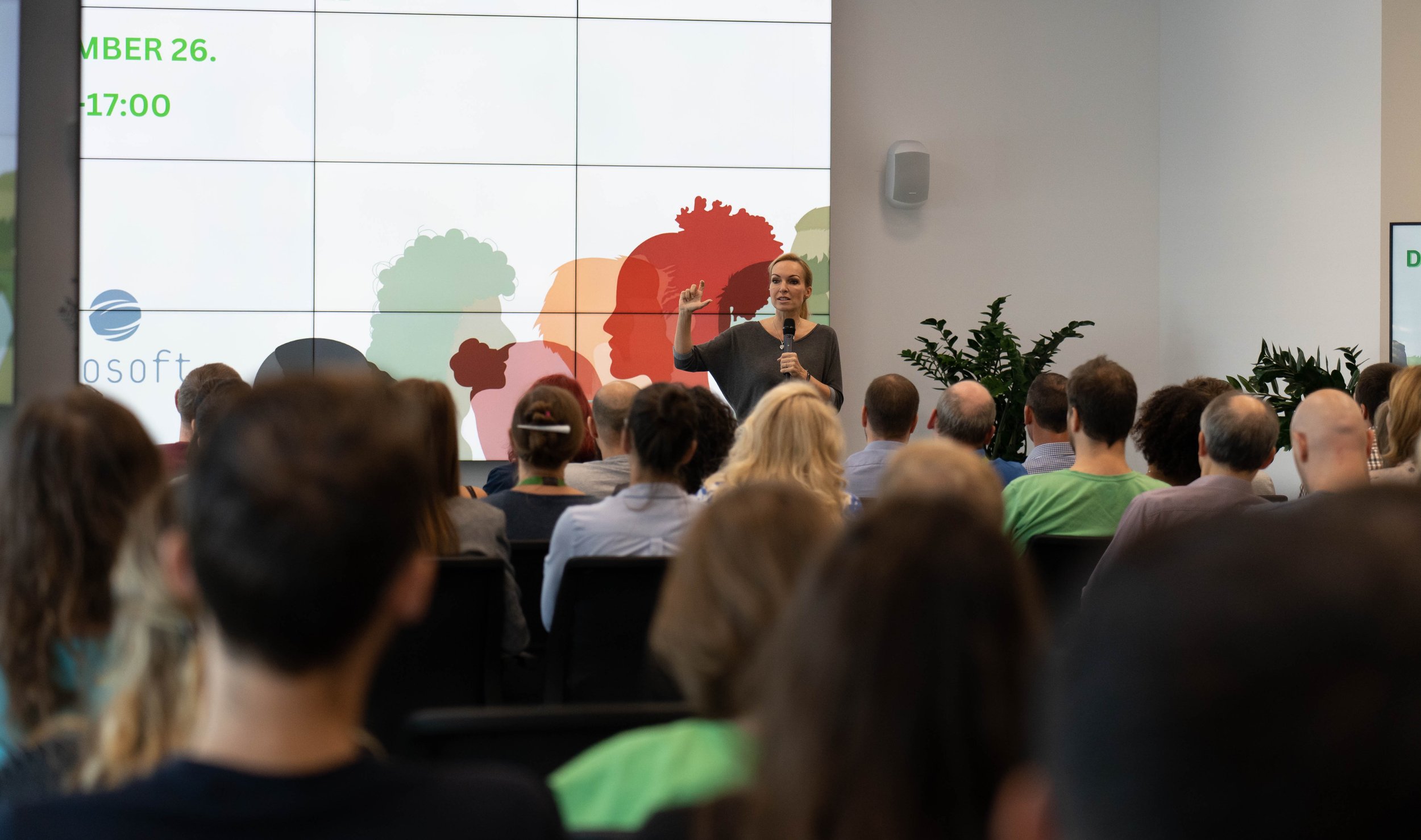Exploring our place in the world: rediscovering ourselves on Diversity Day at evosoft
Topics such as generational differences, the urge to conform to one’s self, the sense of acceptance and ‘being included‘, opportunities to break away from a disadvantaged situation were explored. Without exception, each of these topics is inherently serious, prompting thoughtful consideration. All of them were discussed at the evosoft Diversity Day, where we invited well-known and recognized experts in each field as part of the evosoft Diversity, Equity & Inclusion program, to share insights with our colleagues.
Kitti Almási, one of Hungary's most popular psychologists, whose Instagram page alone boasts a daily following of more than 100,000 people, was our eagerly anticipated speaker. Her books consistently rank at the top of the psychology book sales charts.
Our guest was Kitti Almási, one of Hungary's most popular psychologists
She delivered a lecture at evosoft with the same title as his latest book: Who are you? In the grip of expectations - conformity or self-identity?
She adressed personally significant topics: I resonated with many of her examples about the pressure to conform, self- preservation and the loss of identity. The doctor's presentation covered “artificial” patterns of behaviour created for compliance / desire for confirmation, the burden of constant adjustment, and that deep-seated feeling when, despite our best efforts to please (everyone), we still don't feel comfortable in our own skin. It's as if we're just floating within our bodies, as if an artificial glaze coats us, and as if we're observing everything that happens to us and around us from the outside.
***
Enikő Bereczki, an intergenerational expert, delivered a lecture on the generation gap. Listening to her, it became a little more visible to me why I feel like a UFO when I talk to my parents about a technology issue, or when I'm trying to understand why my child returns home from school and meets his friends in virtual space instead of having a good chat during afternoon sports. Our guest emphasized that the ‘spectacles‘ we receive from life partly depend on when we were born or where we grew up. According to the generational ledger, are we generation X, Y, Z or Alpha? In other words, considering the opportunities available to us from the moment of our birth, the level of technological development and accessibility, and irrespective of the prevailing habits in our environment.
Enikő Bereczki intergenerational expert presented about the generation gap.
I was also eager to meet the speaker whose life path and identity leave one contemplating on his individual ’poles‘. I know it's a matter of taste, but when I looked at Márió Dányi-Nagy's photo, I couldn’t help but think: here’s a handsome, smiling, ’business casual‘ guy that must be catching the eye of many girls. Then I my eyes widened when it turned out that he had worked as a Reformed pastor for six years. Just when I thought that must have been a significant turning point in his life, I continued to read his introduction: Márió is homosexual. We discussed with him the psychology of discrimination and the various meanings of ’otherness‘. In his presentation he highlighted the importance of addressing sensitive issues openly, without taboos or constraints, even in the workplace.
Márió Dányi-Nagy coach, trainer, ex Reformed pastor
Gabriella Bódi is a consultant specializing in leadership development and gamification. From our conversation with her, we gained motivation, realizing that our colleague, who sits next to us in the office every day, may indeed possess hidden abilities. We also possess abilities that are often overlooked, unknown, or tend to be forgotten. She also advocates recognizing each other's hidden ’skills‘, without shame or criticism, but rather finding ways to leverage them as advantages for ourselves and our team. The life path of our presenter was a splendid example of deviation from the norm: Gabi identifies as Roma, female and bisexual. Throughout her life, difficulties did not stem from her identities, but rather from deviating from societal expectations based on her origin or gender identity.
Gabriella Bódi trainer, coach, who also identifies as Roma, female and bisexual
I awaited the meeting with Dr. Zsuzsa Orsós, a biologist and cancer researcher, and a Roma activist with curiosity and excitement. She was the first Roma PhD student in the country to receive a scholarship from the Hungarian Academy of Sciences.
She came from a so-called ‘Beás’ Roma family and started life with an unimaginable disadvantage for the average person: from illiterate parents, extreme poverty and a segregated environment. She not only achieved good academic results but also made it to university. It was touching to hear her talk about how she taught her mother to read and write, how she had a happy childhood despite the difficulties, and she overcame numerous challenges to reach where she is today. She stood in front of her audience with immeasurable modesty, while she fought to draw the attention of as many people as possible to how many Roma and disadvantaged children live in Hungary today, what a varied, healthy diet means to the average person, and what is on the table of these disadvantaged people. She brought shocking statistical data on the average age of Europeans and people with a difficult fate, and the difference in opportunities for a healthy and therefore longer life.
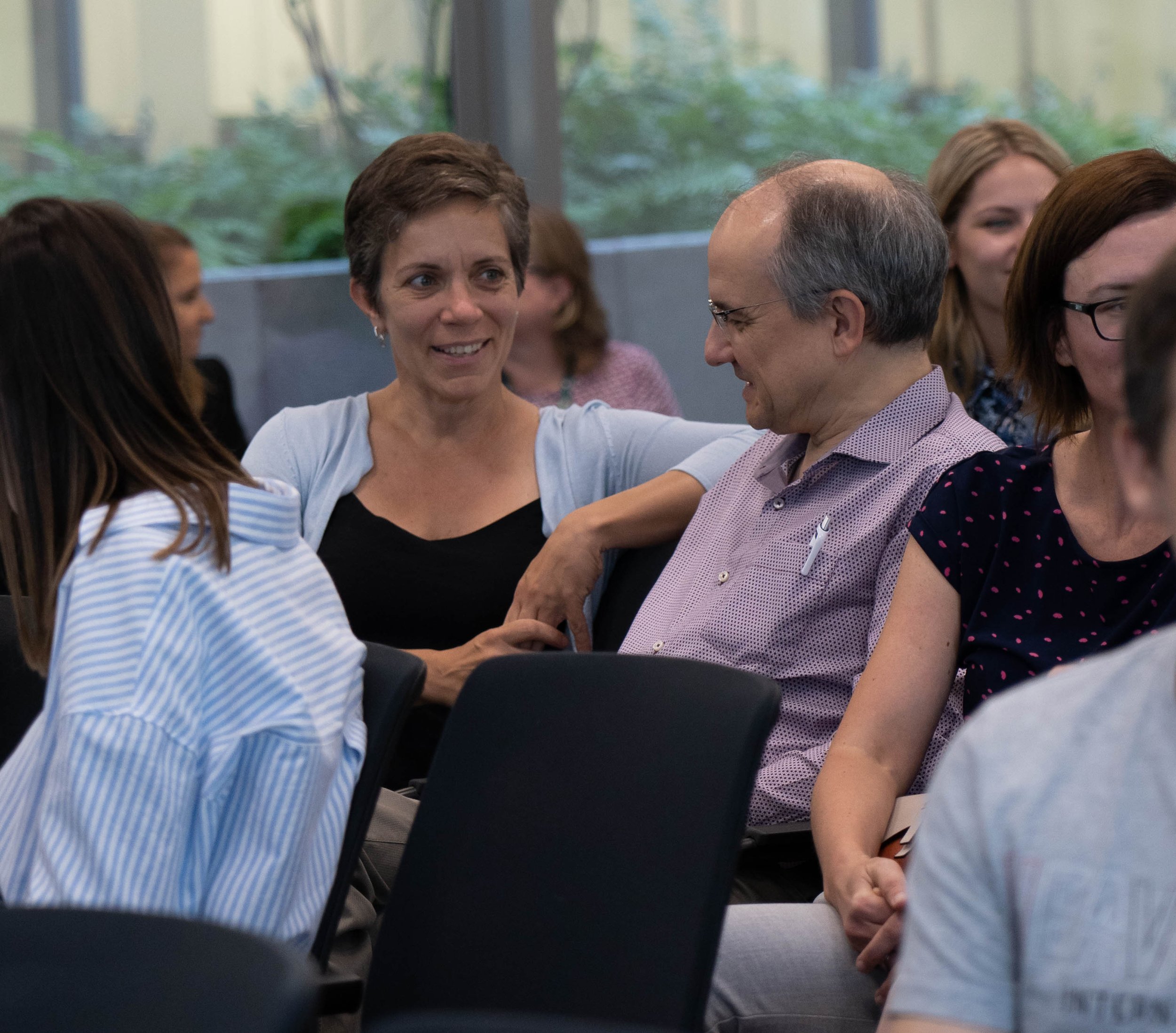
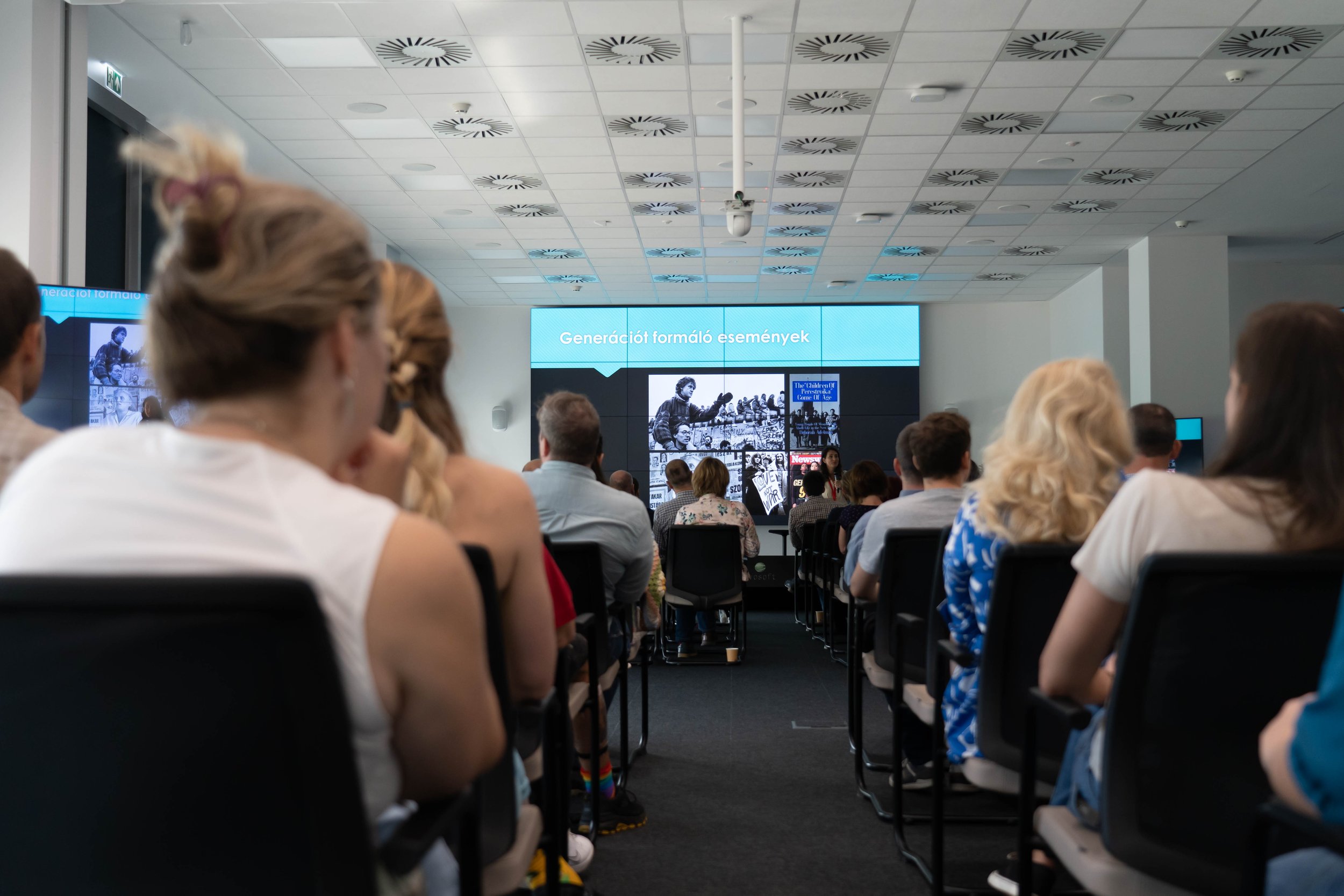
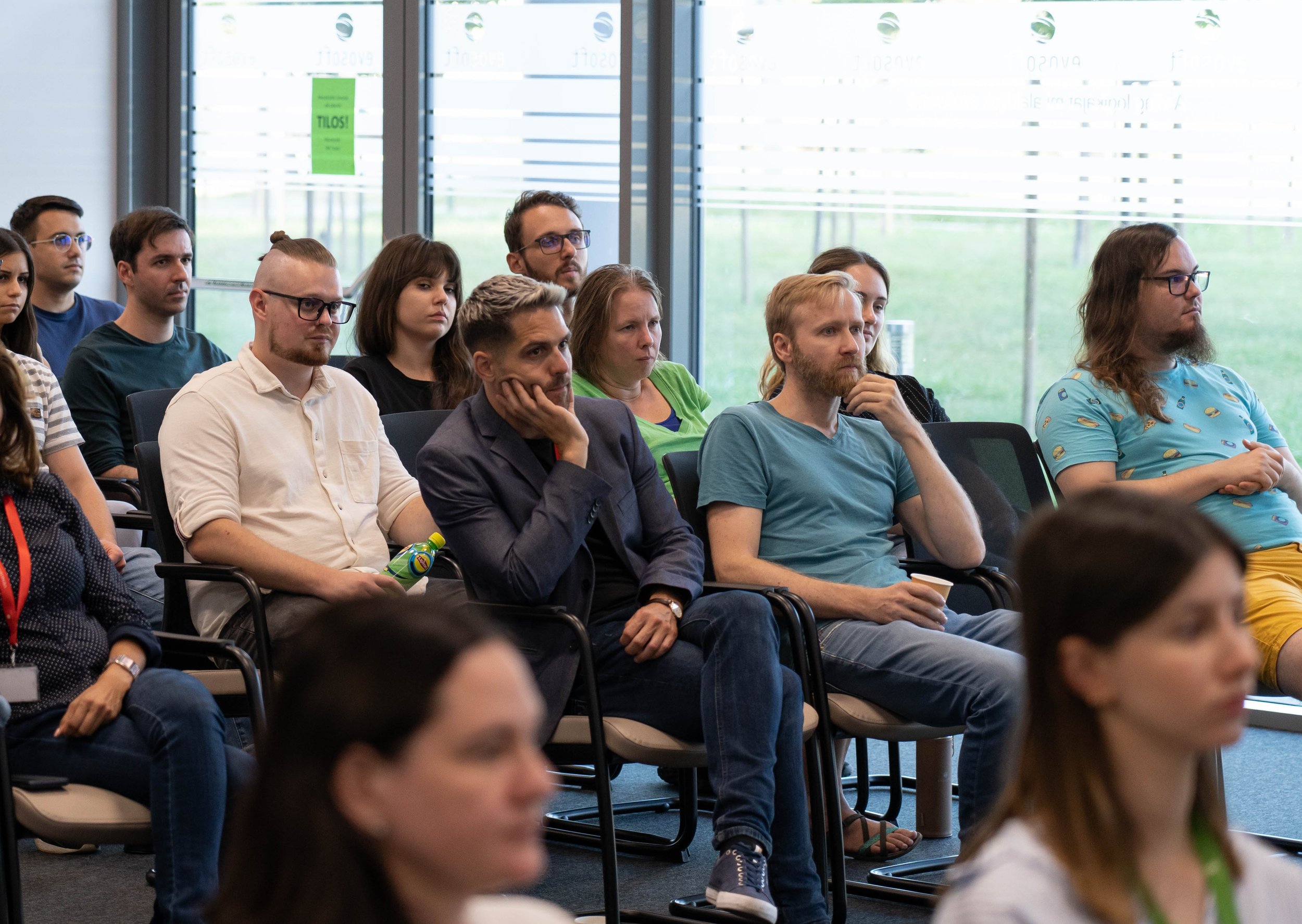
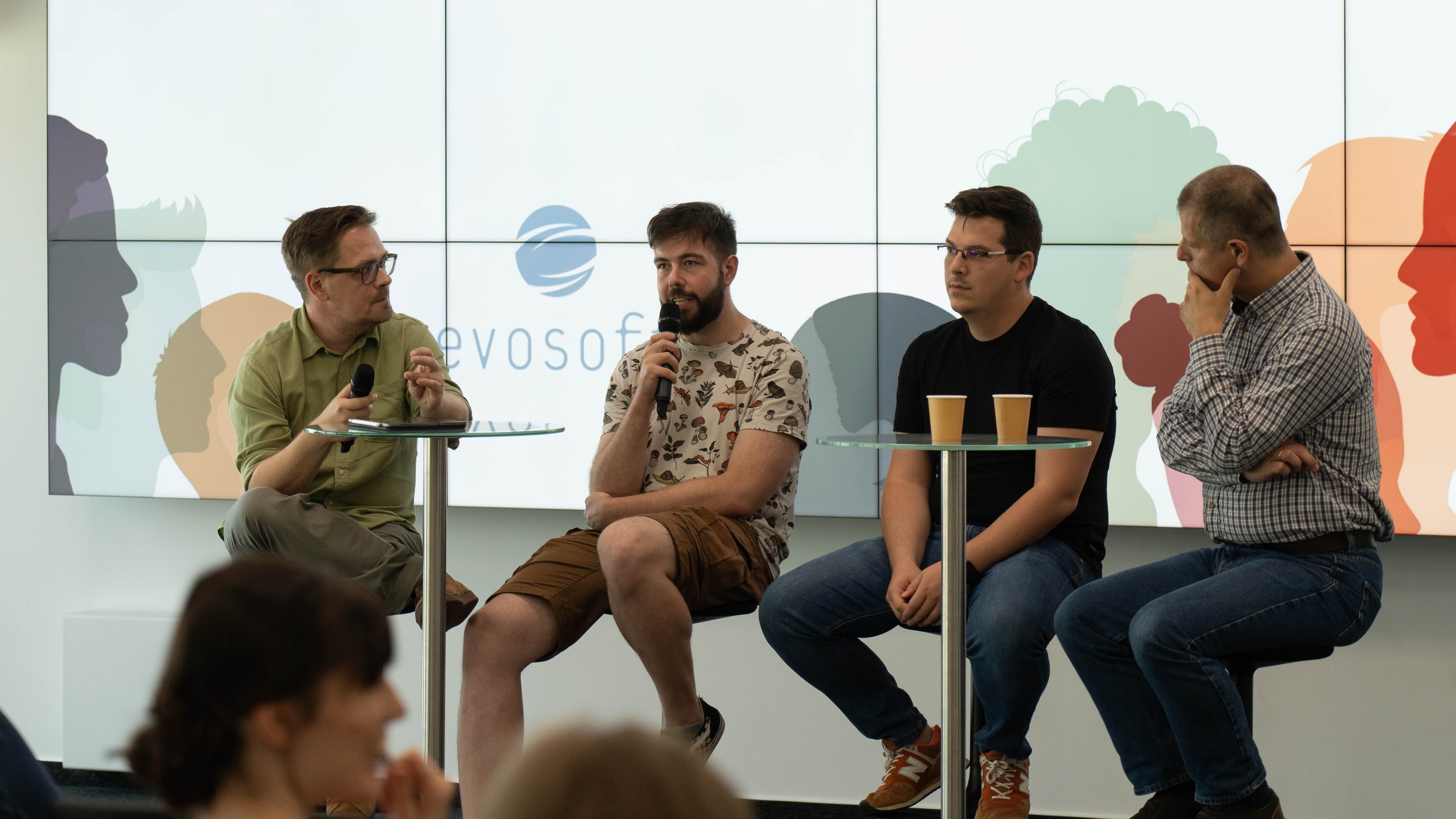
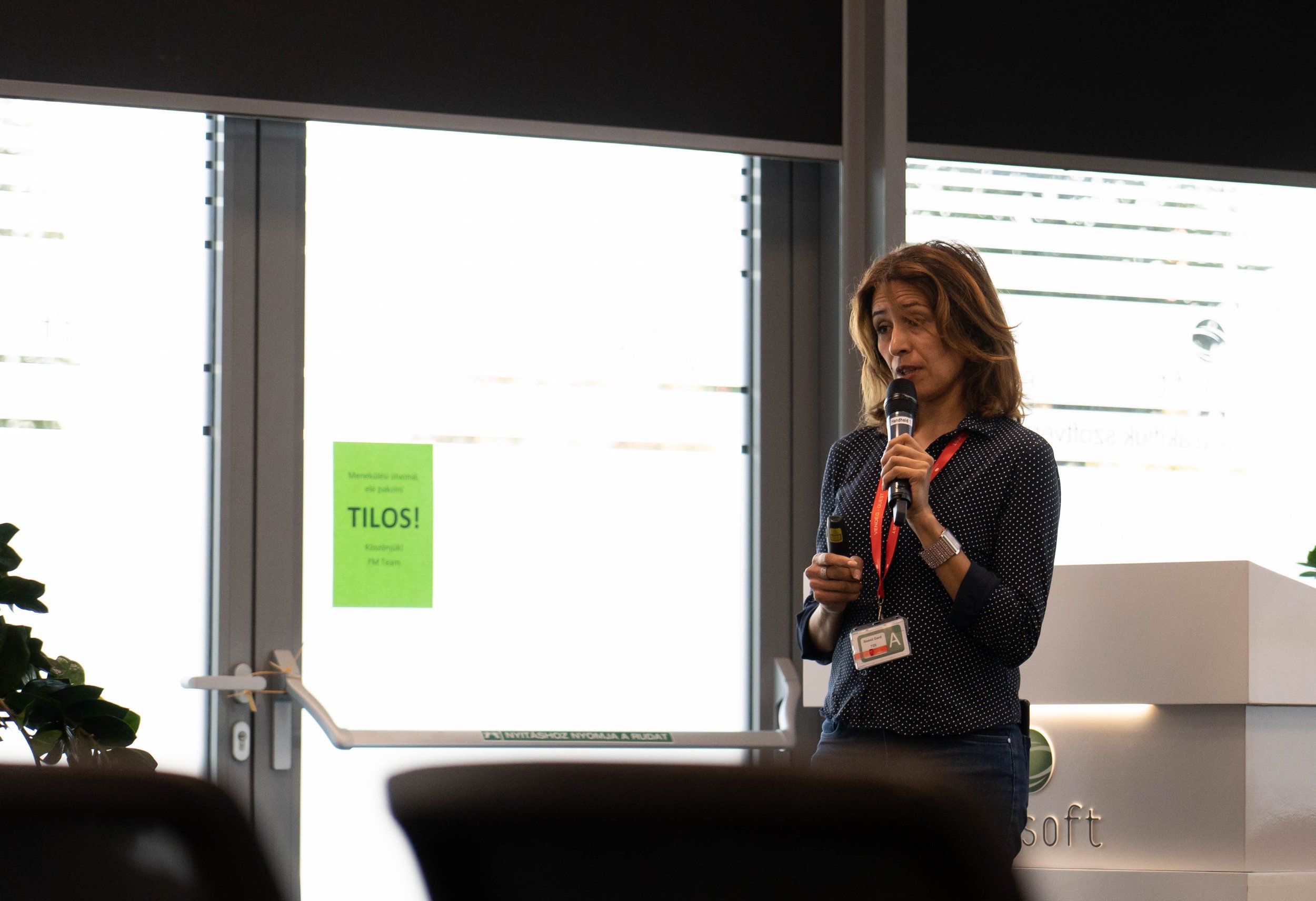
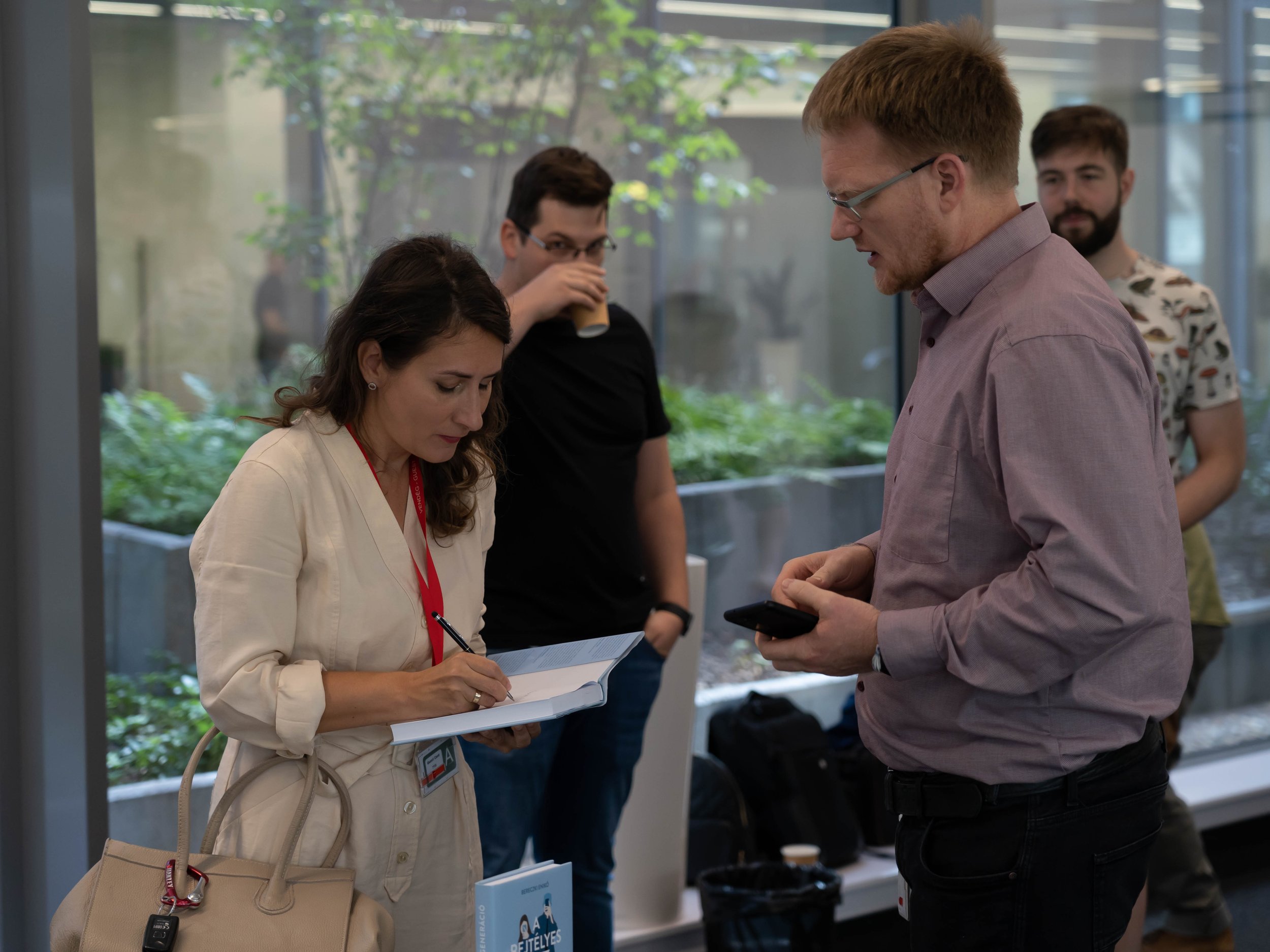
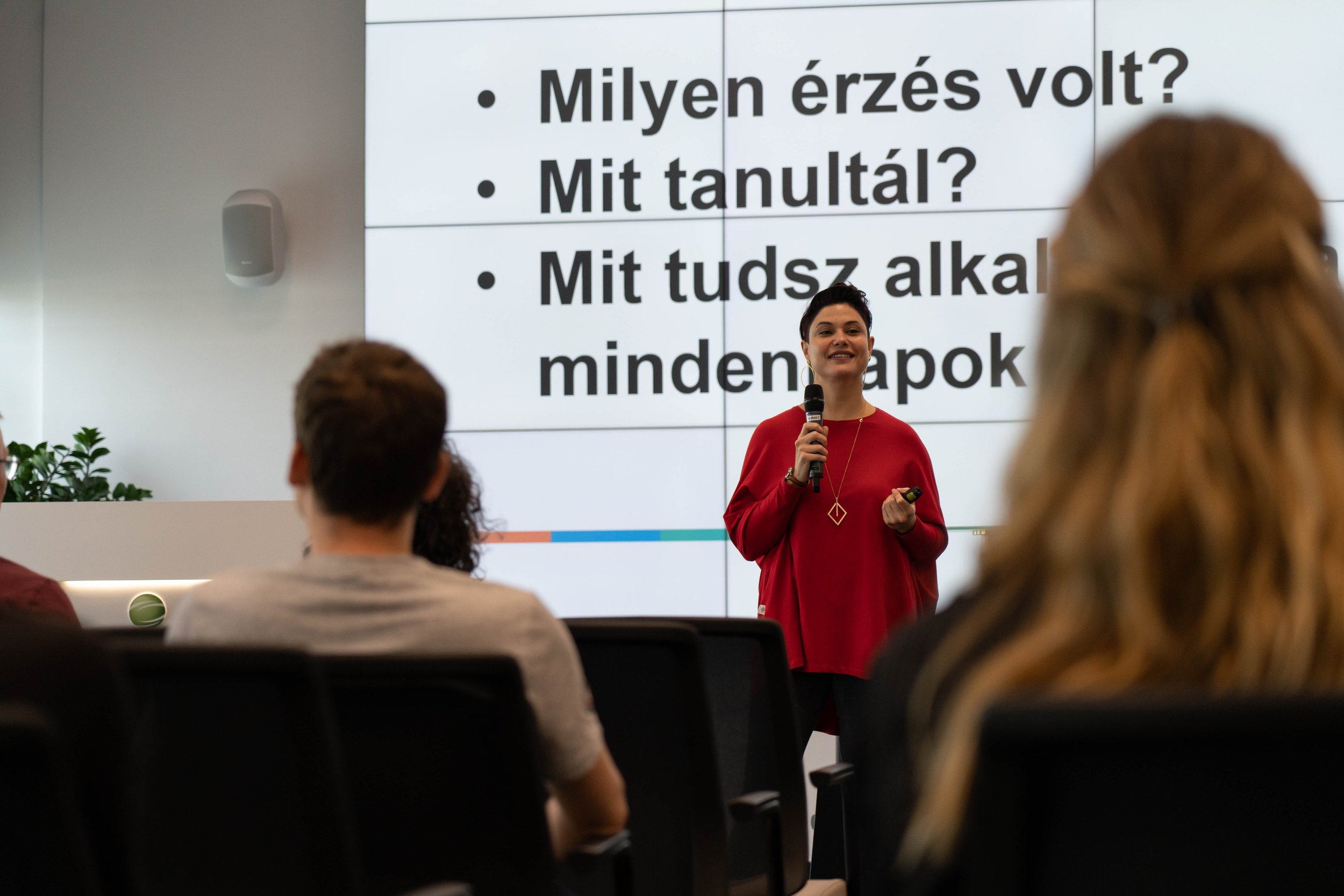
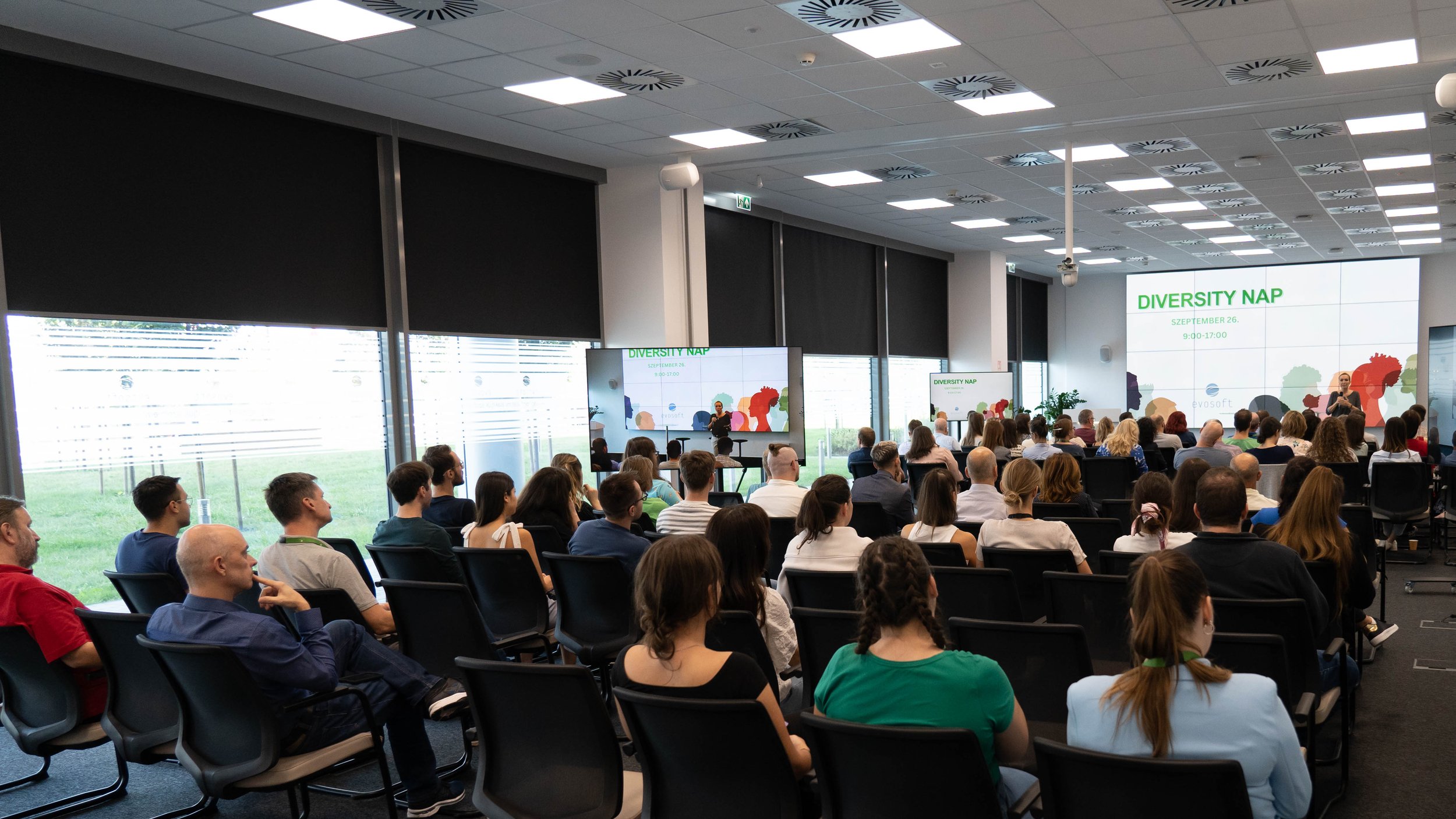
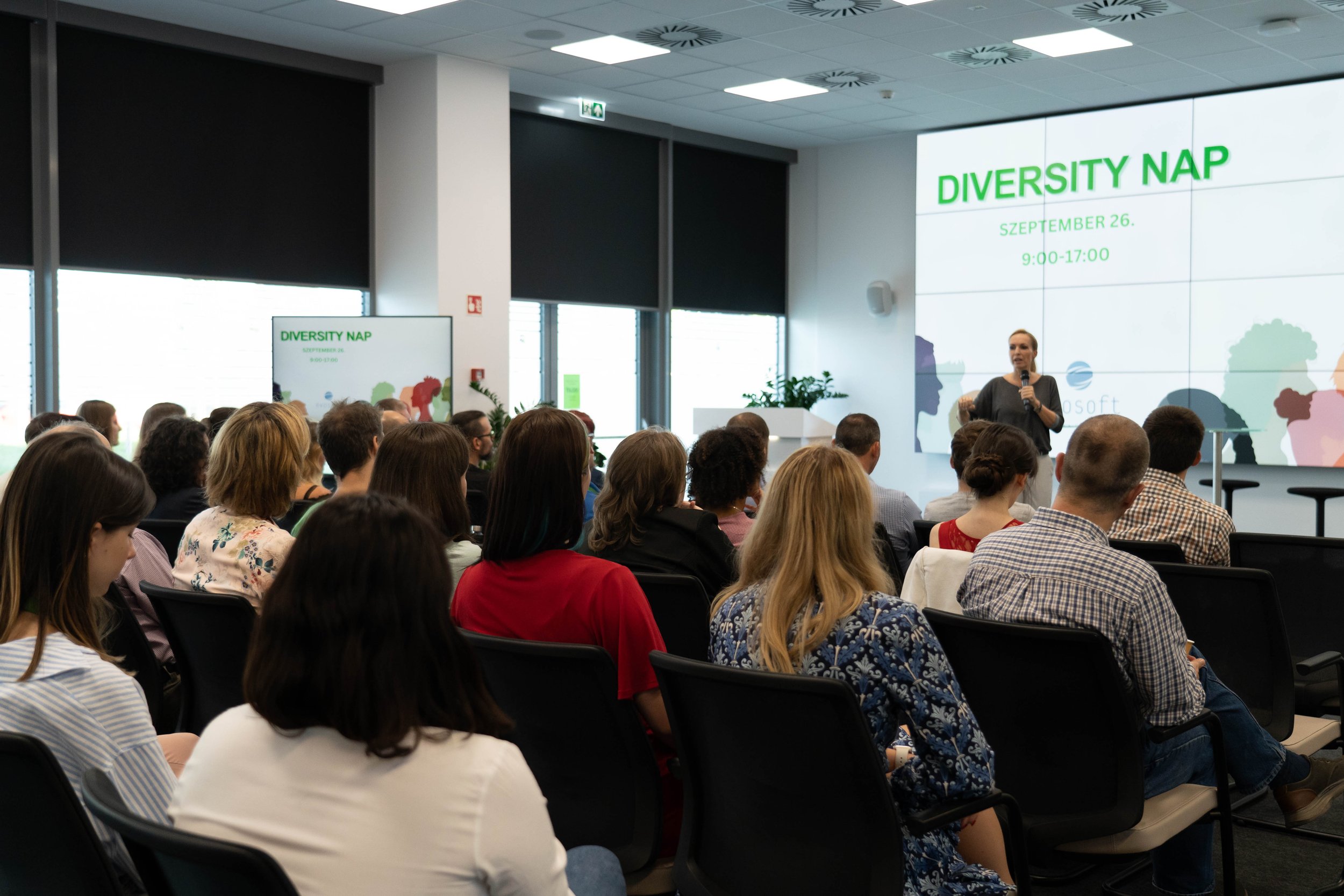
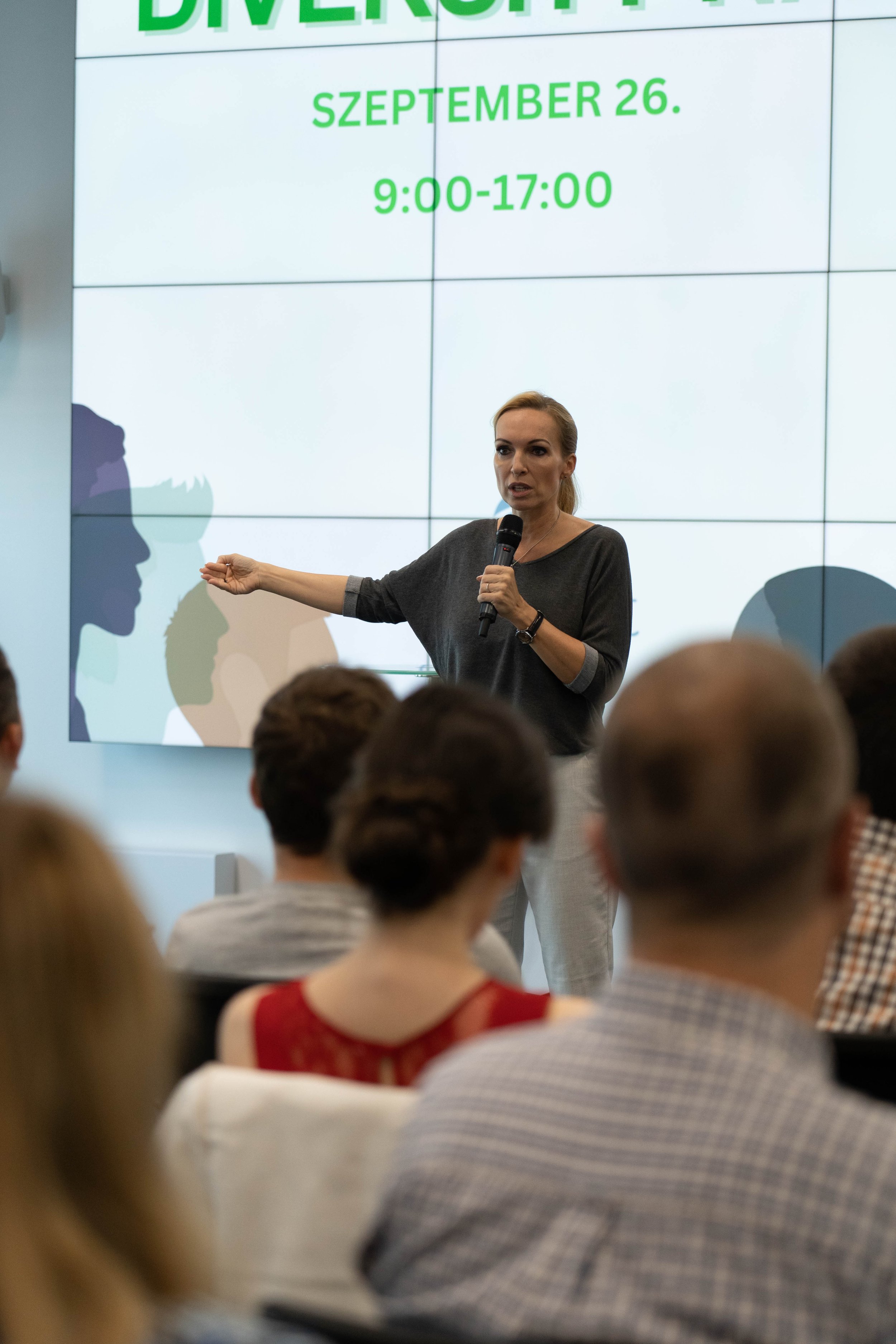
Photo: Zoltán Ivády
Because we didn't dare to do that last year!
Listen to this related podcast. Join our colleague, Imre Horváth, as they engage in insightful conversation with our CEO, István Petényi, and our DEI Ambassador, Balázs Varga, exploring everything related to Diversity, Equity & Inclusion.
In this series, we delve into a wide range of topics, including our Pride campaign, the Human Library event, multinational nature of our company, the complex relationship between religion and the workplace, and even uncover our CEO’s perspectives on quotas. (The podcast is available in Hungarian.)
Visit the post for the podcast channel itself, and how to access it on other platforms (Apple, Google, Spotify, RSS).
